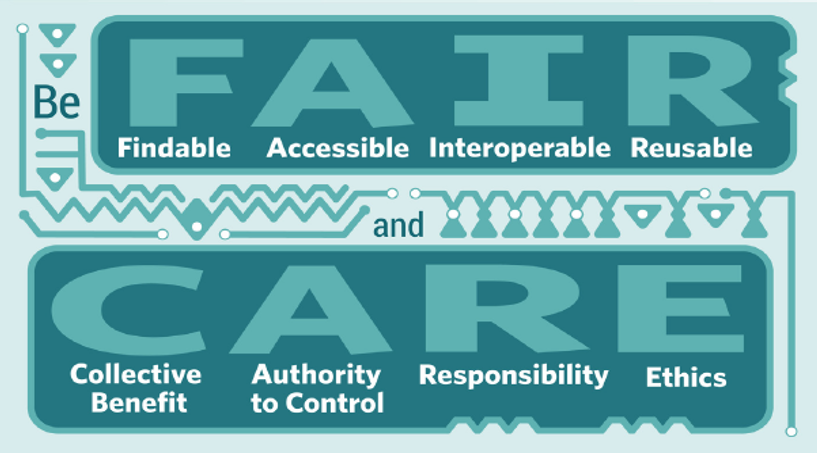Assignment 3
Task 1 will contribute 20% to the total grade of the assignment and task 2 will contribute 80%.
Submission instructions
Task 1: FAIR and CARE principles reading
In this task, you’ll explore two key frameworks in data governance. The CARE principles [1] guide us in thinking ethically about Indigenous data, focusing on respect, benefit, and the right of communities to control their own data. The FAIR principles [2], on the other hand, encourage us to make data easy to find, use, and share, emphasizing machine-actionability.

Read the following resources and write a one-paragraph (between 100 and 150 words) reflection about them:
FAIR principles overview from the GO FAIR Initiative.
What is FAIR? from the NCEAS learning hub resources [3].
Review the rubric for this assignment here. Answer at least one of the following questions for your reflection:
The FAIR principles promote openness and accessibility, while the CARE principles emphasize control and ethics in Indigenous data. Can you think of an example where balancing openness with ethical considerations was or would have been important?
The CARE principles stress the authority of communities over their own data. In your own experience, who has typically held authority over data? How might shifting that authority impact the outcomes or perceptions of data projects you’ve been involved in?
How do the CARE principles challenge or expand your understanding of data management? Have you encountered situations —personally or professionally— where data governance might have benefited from a more community-centered approach?
Setup for task 2
Task 2: Visualizing oil spills in NY State
In this task you will use data from the New York State government about spills of petroleumn and other hazardous materials to visualize trends in the spatial distribution of the spills.

Follow the instructions in the notebook hwk3-task2-oil-spills.ipynb to complete this task. Review the rubric for this assignment here.